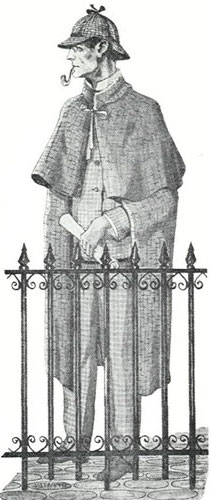
The Adventure of the Tottenham Werewolf
Date - Mid-July, 1933
The Case
Octavius Grayle approaches Pons and Parker at their table in the Diogenes Club. Grayle’s brother, Septimus, believes that he is a werewolf and is suspected of the murders of William Gilton, Miranda Choate and their uncle, Alexander Grayle. All three were found with their throats ripped out on moonlit nights. Pons and Parker set out for Tottenham to look into the matter.
Quotes
Ř Pons: There is not much to be said. Thought it is evident by his colour that he is an ex-colonial – Egypt, I should say, if the scarab ring he wears is any indication – that he has not long been back in England, that he is very probably not a member of the Diogenes Club, but has a guest-card, that he is at present living outside London, since his visits here are periodic compared to yours, which are hardly regular, that his a man of approximately fifty-five years of age, very clearly accustomed to administrative work – work, I submit, dealing in a large measure with native labor, that his interest in the Diogenes Club lies in something than its cuisine, which is not exceptional.
Parker: My dear fellow! I can follow most of your deductions with ease…
Pons: Dear me! How familiarity does breed contempt.
Comments
Ř When Pons first visits Grayle Old Place and meets the family, Regina Grayle is holding a backscratcher. The item is mentioned twice, but neither highlighted nor underplayed. This is excellent writing by Derleth, as the item’s importance is revealed at the end of the story. It is subtle foreshadowing that tests the reader’s level of observation.
Ř Parker is a member of the Diogenes Club and visits it in several stories. In fact, the Club plays an important part in The Adventure of the Stolen Hats. However, it seems to be a less stodgy and exclusive establishment than the one made famous by Mycroft Holmes. Parker and Pons are talking amiably at their table while dining in this case, and Octavius Grayle joins them and converses as well. Of course, in the days of Mycroft, no conversation of any kind was allowed in the Diogenes Club, excepting for the Stranger’s Room.
Ř Again, we see the Pons Principle in action. Everyone believed that Regina Grayle was wealthy. Pons proceeds from the exact opposite assumption. This provides him with a motive that is invisible to everyone else and results in the solution of the case.
Return to Memoirs Home